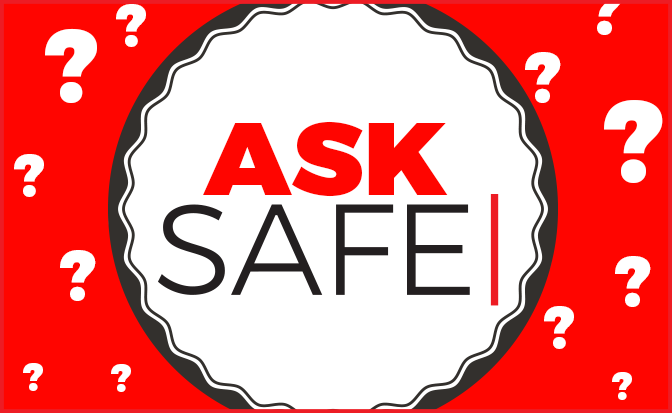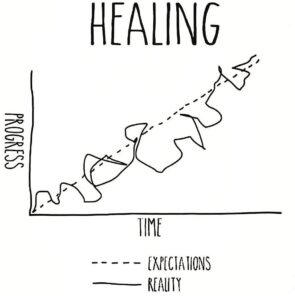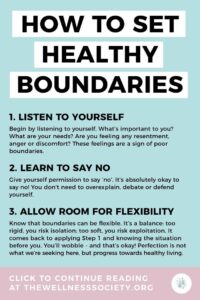Ask SAFE: How do I heal after leaving an abusive situation?
Written by Emily Arismendy
Experiencing abuse can be deeply painful, but healing is possible. Healing after experiencing abuse is a deeply personal process, and each survivor’s journey is as unique as their experience. Whether you’ve endured physical, emotional, or sexual abuse, your healing process will look different from others’. There’s no universal path—what works for one person might not work for another, and that’s okay.
It’s important to remember that healing isn’t linear. Some days may feel easier than others, and that’s normal. It’s essential to move at a pace that feels right for you, seeking methods that empower you along the way. Whether through therapy, building a support network, or engaging in self-care, the goal is to find tools that foster your emotional well-being and growth. Ultimately, your healing journey is yours alone, and taking the steps that feel right for you is key to long-term recovery.

“I’m a teenager in high school and I just left my first serious relationship because my partner was abusive. How do I know I made the right decision and how do I heal when I still miss them?”
It’s normal to feel confused and conflicted after leaving an abusive relationship, especially when it’s your first love or someone you cared about deeply. It’s hard to reconcile the good memories with the reality of the abuse. Here are a few ways to cope and heal:
- Acknowledge Your Feelings: It’s okay to miss the person, even if they hurt you. Feeling confused about that is also valid. The relationship likely had moments that felt good, and it’s natural to mourn the loss. Give yourself permission to grieve and gently remind yourself that missing them doesn’t mean you deserve to be treated that way.
- Seek Support: Talk to trusted friends, family, or a counselor. A safe space to express your feelings without judgment is crucial for healing. Many teens benefit from peer support groups where they can connect with others who’ve had similar experiences.
- Focus on Self-Care: Healing means focusing on you. Do things that make you feel good, help you relax, and build your self-esteem. This could be anything from journaling your thoughts, getting outside for fresh air, or engaging in hobbies you enjoy. This is about rediscovering who you are outside of the relationship.
 Learn About Healthy Relationships: This can be a time to reflect on what a healthy relationship should look like. Learning the red flags of abuse can help you recognize and avoid similar situations in the future.
Learn About Healthy Relationships: This can be a time to reflect on what a healthy relationship should look like. Learning the red flags of abuse can help you recognize and avoid similar situations in the future.
Resources
Expect Respect (A Program of SAFE)
“I was emotionally abused as a child, but I’m still in contact with my parent today as an adult. How can I heal when I can’t cut them out of my life?”
It’s tough to navigate healing when your abuser is still a part of your life, especially when it’s a parent. You may feel a mix of love, guilt, anger and sadness. Figuring out how to reconcile these emotions is challenging. Here are steps to help:
 Set Boundaries: Even though you remain in contact with your parent, you have the right to establish boundaries. Decide what behaviors or conversations you will no longer tolerate and communicate them clearly. This can include limiting the time you spend with them, avoiding specific topics, or seeking space when needed.
Set Boundaries: Even though you remain in contact with your parent, you have the right to establish boundaries. Decide what behaviors or conversations you will no longer tolerate and communicate them clearly. This can include limiting the time you spend with them, avoiding specific topics, or seeking space when needed.
- Focus on Your Healing: Healing from childhood trauma is a personal journey that doesn’t have to involve your parent. Therapy, particularly trauma-informed counseling, can be beneficial in helping you process the abuse and find ways to cope. Support groups for adult survivors of child abuse can also provide a space for understanding and community.
- Shift Focus from Forgiveness to Acceptance: Forgiveness is often pushed as the ultimate goal, but it’s not necessary for healing. Instead, focus on accepting that what happened was not your fault, and you have the power to define the relationship going forward.
- Manage Contact on Your Terms: You don’t have to cut ties completely if you don’t want to, but maintaining the relationship should be on your terms. Stay mindful of how the relationship affects your mental health, and don’t hesitate to pull back if it becomes too overwhelming.
Resources
Adult Survivors of Child Abuse (ASCA)
RAINN (Rape, Abuse & Incest National Network)
Psychology Today: How to Set Boundaries With Family
“I’m recently divorced, and I was sexually assaulted by my spouse. How do I begin healing when I feel so confused about what happened?”
Sexual assault within a marriage can leave survivors feeling especially isolated, confused, and betrayed. Society often reinforces harmful myths about what consent looks like in marriage. Your pain is valid, and healing is possible.
- Acknowledge the Assault: One of the hardest steps is recognizing and naming the abuse for what it was—sexual assault. Understanding that your spouse violated your consent, even in marriage, is key to healing. This process might take time, but self-acknowledgment is a crucial first step.
- Process the Trauma in Therapy: It’s vital to speak with a trauma-informed therapist who can help you unpack the emotions around the assault and the divorce. A therapist can guide you through dealing with the confusion, shame, or guilt you might feel and help you regain a sense of control.
- Rebuild Your Sense of Self: Divorce and abuse can make you feel like you’ve lost your sense of identity. Take small steps toward reclaiming who you are outside of that relationship. Start by pursuing activities you love, setting new personal goals, or spending some quiet time to reflect and reset.
- Join a Support Group for Survivors: You are not alone. Connecting with other survivors of domestic or sexual violence, particularly those who experienced abuse within marriage, can help you feel supported and validated. Hearing others’ stories may reduce feelings of isolation and provide practical coping strategies.
- Recognize that Healing Is Nonlinear: Healing after sexual assault, especially in a long-term relationship like a marriage, is often nonlinear. There may be setbacks, but that doesn’t mean you aren’t healing. Allow yourself to move at your own pace and be kind to yourself through the process.

Resources
National Sexual Violence Resource Center (NSVRC)
The National Domestic Violence Hotline – Marital Rape
Women’s Law – Marital / Partner Rape
Healing after abuse is an ongoing process that looks different for everyone. Whether you’re a teen healing from your first relationship, an adult navigating childhood trauma, or someone processing sexual assault within a marriage, give yourself time and space. Healing isn’t about forgetting the past; it’s about learning to live with it in a way that brings you peace and strength. Seek support, establish boundaries, and above all, remember that you deserve a life free from abuse.
If you or someone you know may be experiencing abuse, SAFE is available for support and safety planning. SAFEline is a 24-hour confidential hotline for people seeking help with child abuse, sexual assault, domestic violence, and sex trafficking and is available by phone at 512.267.SAFE (7233), by text at 737.888.7233, or by chat at www.safeaustin.org/chat.